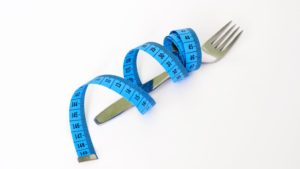Hot flashes. Ugh. At one time in life, every woman will know them all too well.
Though mostly associated with women (with the main cause being menopause), anyone, including men, can experience the condition. Men who are under prostate cancer treatment are likely to experience hot flashes because the treatment restricts the production of testosterone. This is a key hormone with regard to preventing hot flashes in men.
What are Hot Flashes?
A hot flash is basically a feeling of intense heat. It’s not caused by external sources. It can appear suddenly and last for about four minutes. However, it can even go for as long as 10 minutes.
Hot flashes are usually triggered by hormonal changes in your body, and some of the signs include reddening of the skin, a sudden warm feeling on the skin, a tingling feeling on the fingers, as well as excessive sweating (which is mostly) on the upper part of the body.
Spicy foods, cigarettes, stress, caffeine, and alcohol have also been linked to this condition.
Despite all the discomforts and their unpreventable nature, hot flashes can be easily managed through natural remedies, and of course, lifestyle changes.
10 time tested home remedies to help you manage hot flashes:
Give yourself the care you deserve!
1. Watch Your Diet
Certain foods and drinks have been found to trigger hot flashes due to their ability to naturally elevate your body temperature. Some of them include spicy foods, a diet that is high in sugar and fats, caffeinated beverages, and alcohol.
The consumption of such foods and beverages triggers increased hot flash frequency and severity.
You definitely want to start by establishing your hot flash-trigger foods and drinks, so that you cut down on their consumption. Or, if possible, completely avoid them. However, some foods have been found to be very effective in fighting hot flashes.
Hot Flash Management Foods
- Fruits and Vegetables such as bananas, berries, apples, broccoli, and cabbage are rich in fiber—which may help to eliminate hot flashes as well as regulate your blood sugar level.
- Soy, especially soy milk, contains phytoestrogens which help manage hot flashes. Consider incorporating it in your diet for best results.
- Whole Grains including oatmeal and barley are also effective in fighting hot flashes since they contain fiber—which is tasked with the restoration of normal estrogen levels, especially in premenopausal women.
Note: Incorporating plant estrogens (such as flaxseed, fruits, vegetables, soy, whole grains, red clover, and beans) into your diet is one of the most effective ways to bring down the hot flashes.

2. Lower Your Room Temperature
Note that even the slightest increase in your body temperature can trigger hot flashes. Therefore, consider lowering your room temperature by simply turning down the thermostat or by installing a fan.
You can as well sleep with the windows open or dress in layers to help keep your body temperature down whenever it rises.
3. Exercising
Adopt a regular exercising habit as this helps reduce the intensity of hot flashes. Locate a cool environment where you can have a brisk walk, take yoga or engage in any other physical exercises at least five days a week.
Avoid exercising in warm environments as this may just aggravate hot flashes.

4. Quit Smoking
Smoking is a major catalyst of hot flashes (especially in menopausal women) and so avoiding it would help reduce the frequency and severity of this most renowned menopause symptom. This is due to cigarette’s nicotine stimulating effects.
5. Wear Loose Clothing
You obviously hate the heat of hot flashes. Dress in loose clothes. Moreover, cotton-made clothes since help absorb moisture which often results from the excessive night sweats.
6. Work on Your Weight
Battling weight issues? You are at a higher risk of suffering more severe episodes than those with normal body weight. With that said, it’s, therefore, crucial that you switch to a healthy diet. Of course, blend it with lots of exercises.
After all, a healthy weight (just like a healthy diet) is also good for your general health.

7. Carry Your Cool Drink at All Times
The constant seeping of a cool drink can help ease hot flashes once they appear. Drinks also keep you hydrated—which is one of the ways to ensure a stable body temperature.
Don’t forget to carry a bottle of cold water as well, since you can use it to wash your face or hands whenever this “unwelcomed visitor” knocks at your door.
Water works from the outside as well. If drinking your water fails, jump into a cool shower for quick relief.
8. Take Time to Unwind
Stress triggers hot flashes. The causes of stress also lead to the production of epinephrine—a substance that’s responsible for your increased body temperature and the excessive sweating.
Taking some time off your normal duties to indulge in physical body exercises can greatly help to prevent or reduce stress, and as you already know, this also greatly helps to fight the seemingly stubborn hot flashes.
9. Avoid Too Much Exposure to Direct Sunlight
Other than direct sunlight, also try as much as possible to limit your use of hot tubs or hot showers as this may worsen the situation.
In addition to that, avoid hot places when planning for any outdoor activity.
10. Take it Easy
Try as much as possible to avoid panicking whenever the hot flashes set in as this may just elevate your body temperature even further, thus making the whole situation worse. Instead, consider taking a deep breath whenever you experience the condition.
You can also take a deep breath early in the morning and late in the evening—both for 15 minutes.
Keep Your Cool!
Being a menopausal symptom, these episodes can last any time from 6 months to a few years. However, this shouldn’t get you down since you have the power to manage the ever stubborn and irritating symptoms.
Simply switch to a healthy lifestyle—which obviously entails eating a healthy diet and also engaging in healthy habits like regular exercising. Also, note that you must first begin by identifying all those foods and drinks that trigger hot flashes in your body. Then all the above-outlined measures will follow. When home remedies fail, have a discussion with your doctor. She will be able to help tailor a treatment plan for you.

